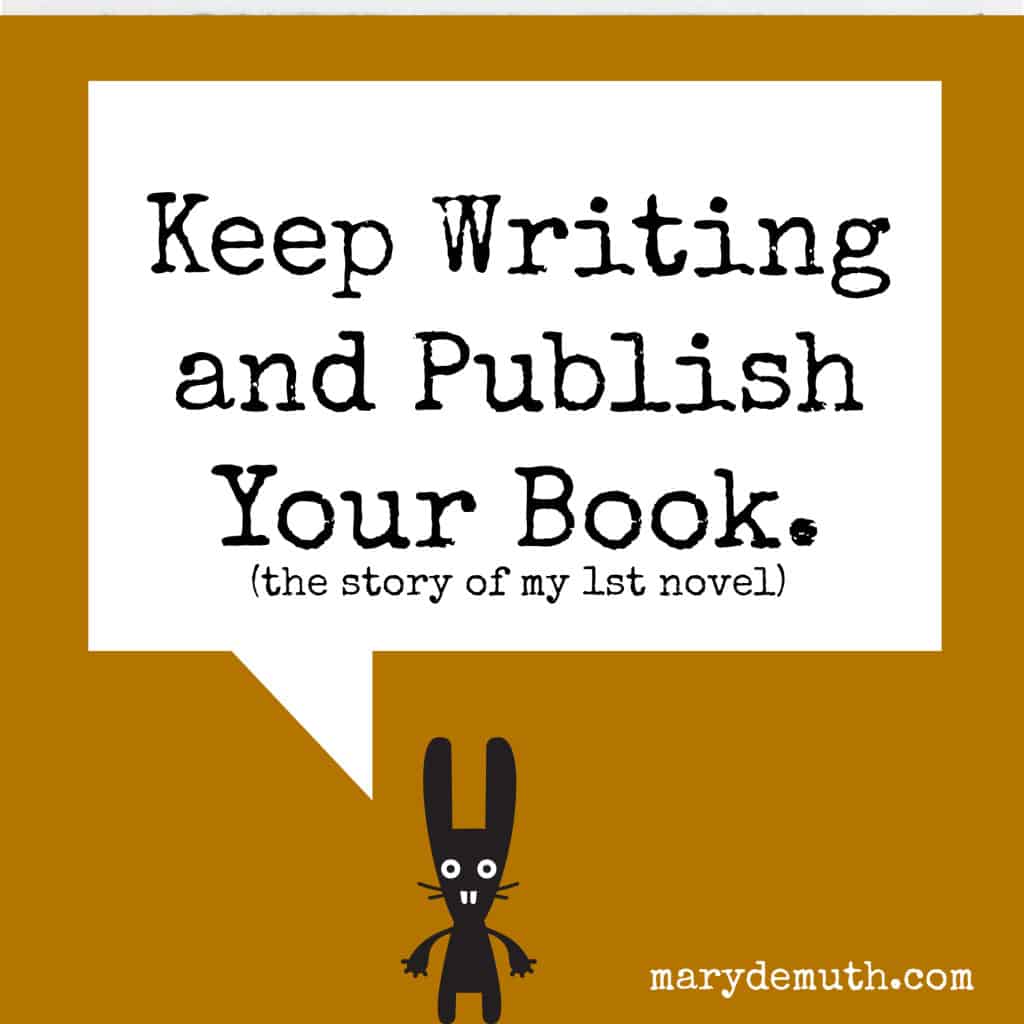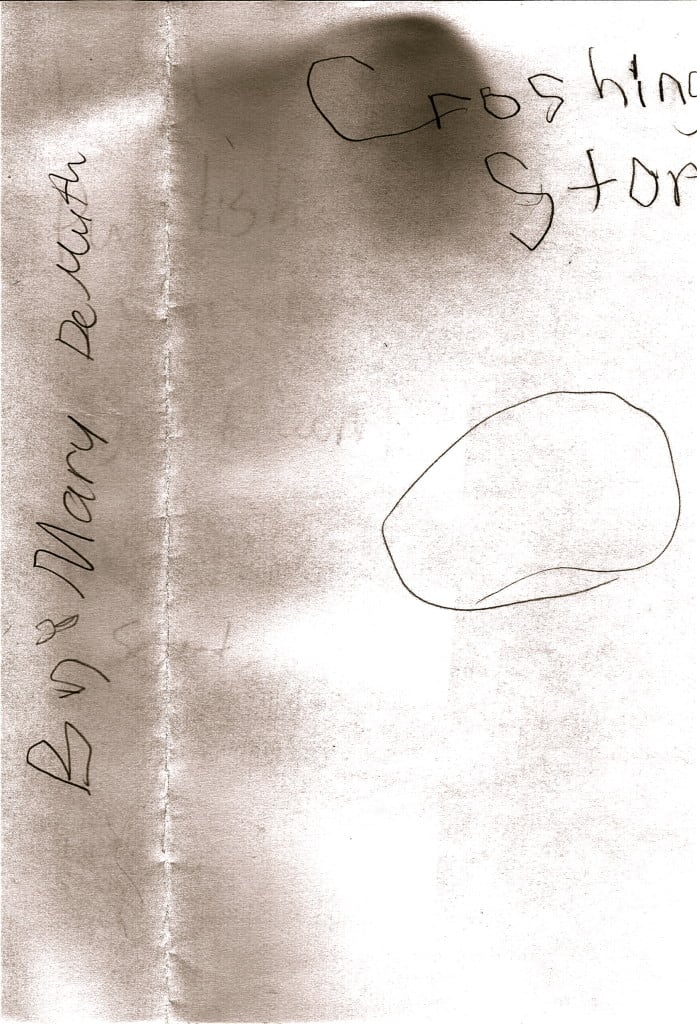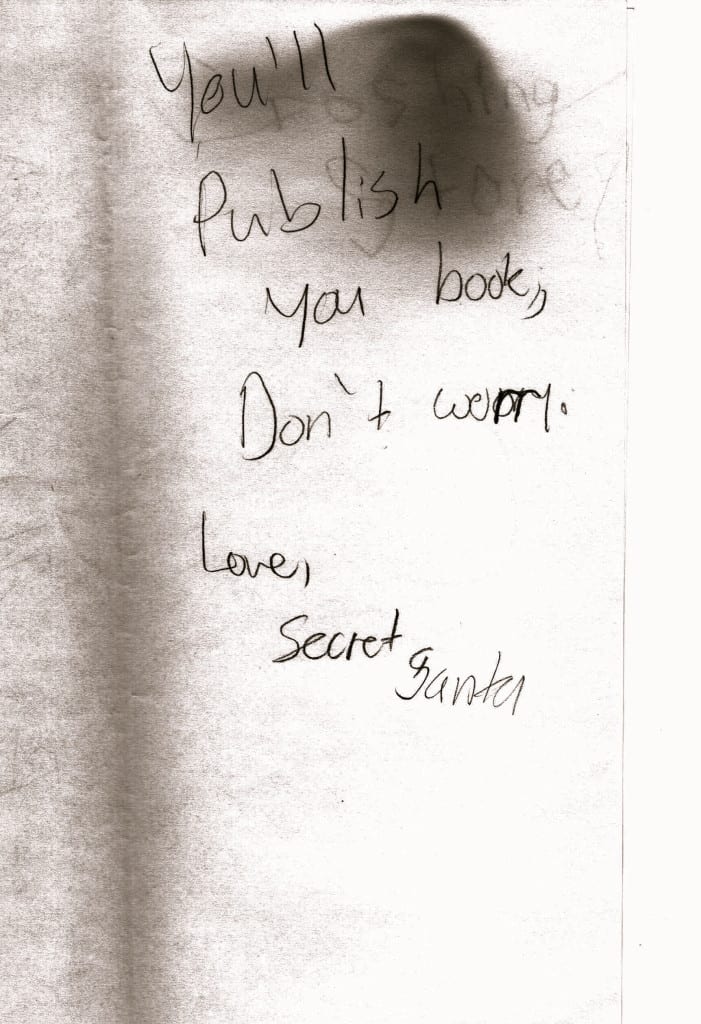The journey to get The Quarryman’s Wife to print started a long, long time ago (though not in a galaxy far, far away.) In the 90s, I grew fascinated by my great Grandmother Mary’s life. I spent that decade researching her, talking to relatives, unearthing research, and talking to her when I could. I had a file folder several inches thick that detailed her life during the Great Depression where she raised her children in the aftermath of her husband’s quarry accident.
When I picked up the pen to write the book, I had to create a story arc for Augusta (Great Grandma Mary’s Middle name) that furthered the story along. Above this paragraph is an amazing picture of her in black and white. Isn’t she beautiful? Can’t you see how much I needed to write this book to honor her?
During that time I struggled as a mom. I battled disconnection. My fall back when things were hard in mommydom was to withdraw and not be available to my kids. God did a tremendous work in me, and I’m still learning in this area. I decided to take Augusta’s grief and use that as the story arc. Because of her sadness over the loss of her husband, she resorts back to stoicism and detachment. The journey, then, is her pathway back to the hearts and lives of her children. So much like mine, though I didn’t have her grief to battle.
My children were bastions of hope and grace during the time I wrote the book. Below is a gift Sophie gave me, veiled as Secret Santa–a book cover with the words Crushing Stone on it and the picture of a rock. (That was the initial title of the book, and Sophie spelled Crushing, “croshing.”) Here it is:
When I nearly finished the book on March 11, 2003, something curious happened. That night a man came to the door with a pizza that we ordered (because I had been writing most of the day and didn’t get dinner cooked.) He looked entirely disheveled and upset. As I looked into his eyes, I felt God ask me to pray for him. I battled briefly with God’s unction, but then decided it was always better to obey the Holy Spirit’s prompting than to ignore it. “Are you okay?” I asked him.
He spoke in broken English, said he’d had a bad day as tears wet his eyes. I asked if I could pray for him, and he agreed. I laid my hand on his shoulder and prayed for the man. I took the pizza. He asked my name. “Mary,” I said. He smiled. “That’s the perfect name,” he said, then left. We ate our pizza, then I typed the last chapter and wrote, “The End.”
That night in the comfort of bed and nearing sleep, the Lord said to me so clearly, “The most significant thing you did today was pray for the pizza man.” I’d written and finished my first novel, but God valued my obedience to pray far more. That lesson still clings to me.
The next day, I wrote this email:

Since then, I rewrote the book, submitted it again, but got more rejection. It wasn’t until the dawn of more efficient POD publishing and epublishing that I considered self publishing this book. I still believed in its heartfelt message.
And now, more than ever, while we face economic uncertainty, I knew the message of this book, particularly with its setting, would resonate with readers. I also have always, always loved design and saw this as a great opportunity to design my own cover. What a thrill that was! I created the cover, spine, and back cover and had a blast. First I published The Quarryman’s Wife via ebook, then re-read the manuscript, horrified at the errors. I thought I had edited the book!
So I re-edited the book, uploaded it again, then worked on the physical copy via Create Space. You can read about the journey here if you’re interested in doing this yourself. It’s not as hard as you might think. Then I received the final proof in the mail, which felt like the joy of birth. Only this birth was two decades in the making. All the research, writing, editing and waiting eventually paid off. I’m humbled that the book is now live, and I am grateful for the journey.
Why?
Because we learn far more in the waiting than we do in instant success. (Click to tweet.) At least I did. And dreams worth pursuing often have extreme obstacles in their way, and their realization is often counterintuitive. If someone had told me that my first novel would be finished in 2003, but then published in 2012 as an ebook I would have laughed. What is an ebook, anyway? 🙂 I never thought I’d be my own publisher, and experience the satisfaction of seeing the project to fruition, albeit a decade in the making.
My daughter Sophie was right. I need not have worried. I did publish my book. But it took me on an amazing journey to get there.
If you’re interested in holding The Quarryman’s Wife in your hands, you can purchase it here.
Need a preview? Here are the first three chapters:
Chapter One
Centerville, Ohio. March 14, 1932.
Augusta always knew Thomas would die young. Always knew God would thrust his angry finger through the muggy Ohio air and point right at him. “Your time’s up,” the Almighty would say. And Thomas, being obedient to the depths, would nod quietly, then slip into glory without so much as saying goodbye.
The word accident repeated itself with each slap of Augusta’s shoes against shale. Accident. Accident. The word screamed in her head, longing to release, but clenched teeth kept her terror to herself. She needed Thomas. Needed his gentle hand with six children and a quarry house to run. Needed his grace-like words. His humor.
Her friend Olya followed behind as they passed stilled shovels, empty water pumps and halted rail cars standing sentry-like in reverential silence. The quarry’s Dinky engines saluted the two wives as they raced toward the rock quarry’s belly.
Thomas, you promised me there’d be no accidents.
Chapter Two
An odd chill twisted inside Meg. She told her stomach to settle. It didn’t obey.
Heading away from school toward Mama’s list of chores, she watched Lily lead the processional of children in pied piper fashion toward the quarry house. At eighteen, Lily’s hair flowed down the back of her dress and frock, blessedly straight. Facing womanhood at fifteen, Meg pined for that straight honey-lit hair, but she tried not to let on that she did. “It’s the sin of covetousness,” Mama scolded when Meg revealed her longing for Lily’s hair.
Lily turned toward her. “Remember me today. I’m afraid I’m a bit weary to be chasing the Wheeler twins around. Are you sure you can’t come help? I’ll pay you.”
“I still have some reporting to do. Miss Allen’s been nagging me about the story I’m working on. I’m sorry. Can’t I help you next week?”
“You’ve procrastinated that story for months. Come just this once?”
“I have the rest of the children to herd home. You know that.”
With that, Lily said her goodbyes to Edward, John-John, Helen.
Lily nodded. Her eyes showed disappointment, but true to form, she thanked Meg for considering it and detoured onto East Franklin Street where two squirrelly Wheeler children awaited her calming touch.
Meg envied Lily, as she walked—no, glided—toward work. Meg never glided, she plodded. John-John once said she clip-clopped like Strawberry, their faithful horse. Her feet grew like rushes, rapid and serpentine-like, so that the only shoes that fit her now were eldest brother’s Frank’s—cloddy, awkward. But with Frank wheezing at home, straining to bring in breath, she knew she should simply be thankful for her own. She pulled one in just for him.
She shrugged, hoping the shrug would shush the antagonistic voices in her head. Someday, she would be elegant. She looked forward to her walk from school in the lazy afternoons when springtime welcomed new bird songs. Mother Nature had flung herself in all her icy fury on Centerville last winter. Meg tasted the cold from September’s first frost until the March blizzard. Until Frank took to the fever, Frank and Edward spent snowy days tamping down paths with their big snow boots for the schoolchildren to walk through. Sometimes a drift would swallow up a quarry kid, so the big boys took to carrying the wide-eyed first graders up the steps to school. It was a relief to have winter’s frigid breath behind her.
Unlike the biting winds of Ohio winter or its muggy days of summer, the spring air had a delicious crispness to it. Faint whiffs of emerging forget-me-nots trailing along a broken fence lightened Meg’s stride as she walked the western shore of the quarry lake.
And still, that niggling.
She renamed the lake “Lake Frank” after her eldest brother’s fake drowning. John-John, who was mischievously eight at the time, thought it would be great fun to yell, “Frank drowned!”
Panicked, Mama had called Decker’s store; she had them dispatch their boat, complete with grappling hooks. Swimmers dove in deep, scanning for Frank in vain. Mama and Meg stood on the back porch, waiting. On the lake perched a small island connected by a rock-strewn isthmus, so several of the men looked for Frank there, hoping he was playing some puckish hiding trick. The search stretched to an hour while Mama rung her hands in helpless anguish. She didn’t even notice Frank when he stood next to her, puzzled.
“What’s all the excitement? Why are all these people swimming in our lake?” Meg could still remember the look on Mama’s face, a combination of relief and anger.
“We thought you drowned! What do you have to say for yourself?”
He shrugged. “You knew I was helping Louis Hanson clean out the fence row at the back of his farm. Did you forget?” Mama had forgotten, and that day the nondescript quarry lake became Lake Frank to Meg. Frank celebrated its christening with the spanking of his life.
She couldn’t help but think what would happen if Frank met his maker that day, and as she plodded home, the familiar tinge that something wasn’t right pitched a tent inside her. The world seemed too quiet. The path in front of her, too neat.
Chapter Three
Augusta stopped.
Before her stood a pile of boulders not there yesterday. Men, like ants serving their queen, scurried about the heap, yelling. The acrid smell of heated rocks permeated the air like the fire-smoke she created in childhood by pounding rocks together. The odor anchored Augusta’s feet to the earth.
“Gloves?” Few understood English, so she pointed to her hands. A dirtied face shook his head no.
Augusta hefted a long plank and motioned Olya to grab the other end. “Leverage with this. Help me get it under.” Her Ukrainian friend obliged. Together they pried at the unforgiving rock until it moved, slightly. Augusta scampered over while an errant wind flapped the skirt of her dress. She sat on the pile above and pushed the moving rock with her legs, careful to smooth her skirt first.
Other wives stood watching, hands held to their mouths like speak-no-evil monkeys. But Augusta bled and dug, grunting under the weight of grief, fear, immovable boulders.
“Stop!” Ira Strang’s voice cut through the labored voices. “I hear something. Quiet!” Even Hattie Wheeler, prone to theatrics, stopped to listen.
Nothing.
A minute passed.
Through the rubble, a muffled noise escaped. “Help” was all it said, but its utterance spurred immediate energy in the quarry. Silence became hollering; inaction sprung to frenetic action. Augusta returned to digging as bits of shale tore into the flesh of her ungloved hands.
“We got one, Doc.”
Augusta’s stomach shot her breakfast to her throat. She swallowed the sting.
Doc Fenn, black bag in hand, rushed over.
“It’s Crawford,” yelled Elijah Frye, the quarry’s electrical engineer. Augusta pulled away from digging and hurried over. Benjamin Crawfords’s bluish face nearly blended with the quarry, the rest of him still buried. The doctor bent over Mr. Crawford, placed a finger on his jugular. The doctor’s shoulders slumped, his head dropped.
“He’s dead,” he whispered. Cries perforated the silence.
When dusk shrouded the rescue, floodlights hooked to electric generators cast a ghastly glow on the pile. Over and over the discoveries had the same conclusion. Someone would yell I’ve found one. Everyone would stop. Doc Fenn would press his finger into the man’s neck, whisper he’s dead and the digging would continue.
Benjamin Crawford.
Jack Ramsey.
Jim Wheeler.
Hattie Wheeler collapsed when Doc Fenn announced Jim’s demise, though Augusta worried more for Welcome, Jim’s sweet-tempered brother.
When another I’ve found one echoed off the quarry’s walls, Augusta’s bleeding hand grabbed Olya’s.
“It’s the immigrant. He’s alive!” Alex’s eyes were closed, but his lips moved. His upper torso now lay exposed, his lower trunk held captive by one menacing boulder. Men above strained against an iron lever to free him.
“What’s he saying?” Doc Fenn looked at Olya.
“He says he can’t feel his legs” She pulled the babushka from her head and held it to Alex’s bleeding temple while men strained to free him. The rock budged, then gained momentum and rolled off Alex’s legs.
“Let’s get him to the hospital,” Doc Fenn ordered. “Easy now. Lift him easy.” Augusta noticed how Alex’s ankles skewed outward, like a child’s first drawing of legs and feet. Olya kept her hand on the side of his face. She sang to him.
She looked up at Augusta. “Don’t worry Miss. They’ll find your Thomas.”






0 Comments